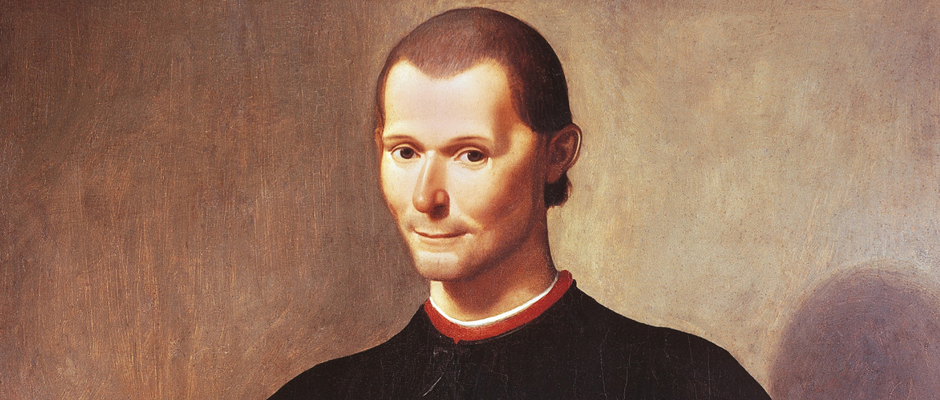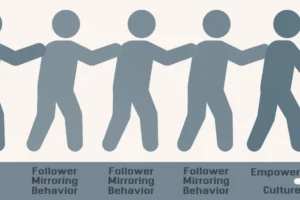Essential Qualities of Great Leaders Per Machiavelli
Machiavelli’s The Prince is an insightful piece meant to demonstrate the fragility of power. In that, Machiavelli provides a slew of qualities of both evil and great leaders. However, several stand out as essential for all great leaders to understand. Furthermore, such perspectives can be used in various settings after even a little critical reflection.
Be Good to Your People
Machiavelli states in Chapter IX – He who becomes a Prince through the favour of the people should always keep on good terms with them; which it is easy for him to do, since all they ask is not to be oppressed. But he who against the will of the people is made a Prince by the favour of the nobles, must, above all things, seek to conciliate the people, which he readily may by taking them under his protection. For since men who are well treated by one whom they expected to treat them ill, feel the more beholden to their benefactor, the people will at once become better disposed to such a Prince when he protects them, than if he owed his Princedom to them.
Machiavelli clarifies that leaders should remain on good terms with their people or go out of their way to establish such terms. Such actions are essential if that leader is put into power against the followers’ will. Consider the promotion of one leader over another, or perhaps, hiring a leader from outside the organization instead of promoting someone from within. Consider the fear that might result from that. One of the easiest ways for a leader to gain favor with their people is not to oppress them. Instead, protect your people from unnecessary hardships. Doing so not only helps to foster trust and reduce opposition but also helps to solidify your position as the leader.
Arm Your People
Machiavelli states in Chapter XII – And we see from experience that both Princes and Republics when they depend on their own arms have the greatest success, whereas from employing mercenaries nothing but loss results. Moreover, a Republic trusting to her own forces, is with greater difficulty than one which relies on foreign arms brought to yield obedience to a single citizen. Rome and Sparta remained for ages armed and free. The Swiss are at once the best armed and the freest people in the world.
Did you hear the one about the manager who asked the leader, “What if we train them and they leave?” The leader responded, “What if we don’t train them and they stay?” Machiavelli demonstrates the curious historical theme regarding the oppression of individuals and the eventual collapse of power when the people are unarmed or when the means of defense are outsourced. Of course, one can learn from that in several ways.
As seen and from a position of the state, Machiavelli suggests that the citizenry should be well-armed and that leaders should refrain from outsourcing their means of defense to mercenaries. Machiavelli was probably correct, but the same likely also holds for organizations. From an organizational and personal position, we must understand that knowledge and skills are the weapons of choice. Therefore, leaders must arm themselves and their people with knowledge and skills, trust their people, and not be so quick to outsource.
Always Be Prepared for Battle
Machiavelli states in Chapter XIV – A PRINCE, therefore, should have no care or thought but for war, and for the regulations and training it requires, and should apply himself exclusively to this as his peculiar province; for war is the sole art looked for in one who rules, and is of such efficacy that it not merely maintains those who are born Princes, but often enables men to rise to that eminence from a private station; while, on the other hand, we often see that when Princes devote themselves rather to pleasure than to arms, they lose their dominions. And as neglect of this art is the prime cause of such calamities, so to be a proficient in it is the surest way to acquire power.
The chances are that you do not go out of your way to cause problems. Yet, somehow, difficulties and struggles will come to you. Whether one is the leader of a nation, the leader of an organization, or a non-positional leader, leaders must be prepared to take on those struggles and win. Such preparation requires a different mindset for most. Machiavelli suggests that leaders must become students of their battle plans, remain armed, and remain vigilant. In other words, leaders cannot afford to rest or lower their guard. Instead, they must become elite professionals that consistently hone their skills and are ready for battle.
Leave No Doubt
Machiavelli states in Chapter XVII – And here comes in the question whether it is better to be loved rather than feared or feared rather than loved. It might perhaps be answered that we should wish to be both; but since love and fear can hardly exist together, if we must choose between them, it is far safer to be feared than loved. For of men it may generally be affirmed, that they are thankless, fickle, false, studious to avoid danger, greedy of gain, devoted to you while you are able to confer benefits upon them, and ready, as I said before, while danger is distant, to shed their blood, and sacrifice their property, their lives, and their children for you; but in the hour of need they turn against you.
When people think of fear, they often think of impending doom. However, fear can also be a means of self-preservation. The Robertson family has a saying, Garg’n Uair Dhuisgear. It is Gaelic for Fierce when Roused. In the Robertson family, it is understood that one should not start a fight, but if a fight happens to find a Robertson, they are expected to finish that fight with tenacity. The idea is that doing so leaves no doubt that an opponent was better off having not started a fight with a Robertson. Leaders, too, must leave no doubt that they can and will act when it is necessary to do so. Leaving no doubt helps establish healthy respect from followers and potential opponents.
However, when most people think of fights, they imagine a physical altercation. I want to challenge my readers to think of a fight as any struggle. We all have them, and leaders usually have more than their fair share due to the position’s responsibility. In that, our people need to know that we are reliable and capable of facing adversity.
Sure, people want to know that they can turn to their leaders and that their leaders will be there for them. But at the same time, people also want to know that their leader has the ability and willingness to act for the betterment of the team or organization. If followers do not feel this, they will likely abandon that leader. Remember, people, leave leaders, not organizations. Moreover, if opponents do not think you will act, they will probably seize their strategic advantage and destroy you.
To ensure the necessary level of respect, leaders must choose action over inaction, and sometimes, they must decide to weaponize the unpleasant emotion of fear over love. Leaders must not shy away from having others fear them because leaders are, at times, going to have to make tough decisions that negatively impact the lives of others. That is to say that choosing inaction for the sake of being agreeable and loved is a quick way to destroy effectiveness, credibility, and power. Take action by always doing the right thing, and leave no doubt that you can make decisions and act upon those decisions when it matters most.
Did you enjoy this article? You might also like “Machiavelli “The Prince” – Was It A Warning?” or “Protect Yourself: Be the Fox and a Lion.“
The Prince – By Niccolo Machiavelli – Complete Full Audiobook
Resource:
Machiavelli, Niccolo. The Prince, translated by N.H. Thomson. Vol.XXXVI, Part 1. The Harvard Classics. New York: P.F. Collier & Son,1909–14; Bartleby.com, 2001. www.bartleby.com/36/1/.




